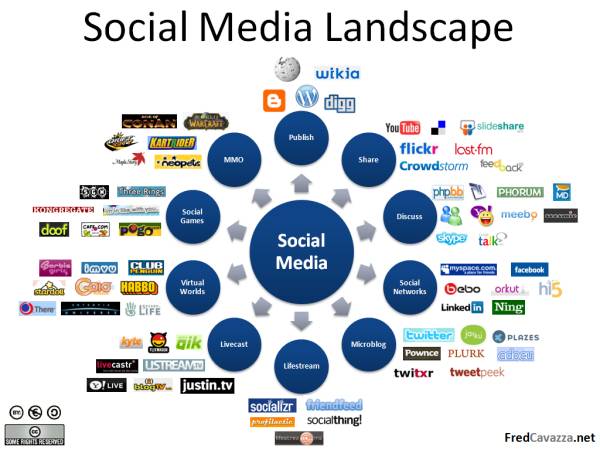Sorry folks, no april fool jokes this time. But you can relieve the last year’s April Fools Joke! Below are a couple list of April Fool Jokes + the latest in 2010.
Most Famous List of April Fool Jokes in History
Meanwhile, just for your entertainment on this fine day. Gathered mainly through Wikipedia
- Alabama Changes the Value of Pi: The April 1998 newsletter of New Mexicans for Science and Reason contained an article written by physicist Mark Boslough claiming that the Alabama Legislature had voted to change the value of the mathematical constant pi. This claim originally appeared as a news story in the 1961 science fiction novel Stranger in a Strange Land by Robert A. Heinlein.
- Spaghetti trees: The BBC television programme Panorama ran a famous hoax in 1957, showing Italians harvesting spaghetti from trees. They had claimed that the despised pest, the spaghetti weevil, had been eradicated. A large number of people contacted the BBC wanting to know how to cultivate their own spaghetti trees. It was, in fact, filmed in St Albans.
- Left Handed Whoppers: In 1998, Burger King ran an ad in USA Today, saying that people could get a Whopper for left-handed people whose condiments were designed to drip out of the right side. Not only did customers order the new burgers, but some specifically requested the “old”, right-handed burger.
- Taco Liberty Bell: In 1996, Taco Bell took out a full-page advertisement in The New York Times announcing that they had purchased the Liberty Bell to “reduce the country’s debt” and renamed it the “Taco Liberty Bell.” When asked about the sale, White House press secretary Mike McCurry replied tongue-in-cheek that the Lincoln Memorial had also been sold and would henceforth be known as the Lincoln Mercury Memorial.
- DT Day: In 2008 fliers were handed on Brigham Young University campus, saying that the last in a series of dorm buildings being torn down was scheduled to be imploded on April 1. Hundreds of people eagerly turned up to see the implosion, but to their consternation it never happened. The culprits of this prank remain unknown.
- Smell-o-vision: In 1965, the BBC purported to conduct a trial of a new technology allowing the transmission of odor over the airwaves to all viewers. Many viewers reportedly contacted the BBC to report the trial’s success. In 2007, the BBC website repeated an online version of the hoax.
- Tower of Pisa: The Dutch television news reported in the 1950s that the Tower of Pisa had fallen over. Many shocked people contacted the station.
Top April Fool Jokes By Television Stations
- Free Color TV – In 1962 the Swedish national television did a 5-minute special on how one could get color TV by placing a nylon stocking in front of the TV. A rather in-depth description on the physics behind the phenomenon was included.
- Digital Big Ben – In 1980, the BBC reported a proposed change to the famous clock tower known as Big Ben. The reporters stated that the clock would go digital. England was in a state of shock.
- Flying Penguins – In 2008, the BBC reported on a newly discovered colony of flying penguins. An elaborate video segment was even produced, featuring Terry Jones (of Monty Python fame) walking with the penguins in Antarctica, and following their flight to the Amazon rainforest.
- The Trouble with Tracy – In 2003, The Comedy Network in Canada announced that it would produce and air a remake of the 1970s Canadian sitcom The Trouble with Tracy. The original series is widely considered to be one of the worst sitcoms ever produced. Several media outlets fell for the hoax.
- Diet Water – In 2004, British breakfast show GMTV produced a story claiming that Yorkshire Water were trialing a new ‘diet tap water’ that had already helped one customer lose a stone and a half in four months. After heralding the trial as successful, it was claimed that a third tap would be added to kitchen sinks, allowing customers easy access to the water. Following the story, Yorkshire Water received 10,000 enquiries from viewers.
Top April Fool Jokes by Radio Stations
- Death of a mayor: In 1998, local WAAF shock jocks Opie and Anthony reported that Boston mayor Thomas Menino had been killed in a car accident. Menino happened to be on a flight at the time, lending credence to the prank as he could not be reached. The rumor spread quickly across the city, eventually causing news stations to issue alerts denying the hoax. The pair were fired shortly thereafter.
- Phone call to Nelson Mandela: In 1998, UK presenter Nic Tuff of West Midlands radio station Kix 96 pretended to be the British Prime Minister Tony Blair when he called the then South African President Nelson Mandela for a chat. It was only at the end of the call when Nic asked Nelson what he was doing for April Fools’ Day that the line went dead.
- Jovian-Plutonian Gravitational effect: In 1976, British astronomer Sir Patrick Moore told listeners of BBC Radio 2 that unique alignment of two planets would result in an upward gravitational pull making people lighter at precisely 9:47 a.m. that day. He invited his audience to jump in the air and experience “a strange floating sensation.” Dozens of listeners phoned in to say the experiment had worked.
- Cellphone Ban : In New Zealand the radio station the Edge’s Morning Madhouse enlisted the help of the Prime Minister on April 1st to inform the entire country that cellphones are to be banned in New Zealand. Hundreds of callers rang in disgruntled at the new law.
- National Public Radio Every year National Public Radio in the United States does an extensive news story on April 1. These usually start off more or less reasonably, and get more and more unusual. A recent example is the story on the “iBod” a portable body control device. In 2008 it reported that the IRS, to assure rebate checks were actually spent, was shipping consumer products instead of checks. It also runs false sponsor mentions, such as “Support for NPR comes from the Soylent Corporation, manufacturing protein-rich food products in a variety of colors. Soylent Green is People.”
- Three-dollar coin: In 2008, CBC Radio program As It Happens interviewed a Royal Canadian Mint spokesman who broke “news” of plans to replace the Canadian five-dollar bill with a three-dollar coin. The coin was dubbed a “threenie”, in line with the nicknames of the country’s one-dollar coin (commonly called a “loonie” due to its depiction of a common loon on the reverse) and two-dollar coin (“toonie”).
- U2 Live on Rooftop in Cork: In 2009 hundreds of U2 fans were duped in an elaborate prank when they rushed to a shopping centre in Blackpool in Cork believing that the band were playing a surprise rooftop concert. The prank was organised by Cork radio station RedFM. The band were in fact just a tribute band called U2opia.
Best April Fools Jokes & Pranks By Websites
- Dead fairy hoax: In 2007, an illusion designer for magicians posted on his website some images illustrating the corpse of an unknown eight-inch creation, which was claimed to be the mummified remains of a fairy. He later sold the fairy on eBay for £280.
- Water on Mars: In 2005 a news story was posted on the official NASA website purporting to have pictures of water on Mars. The picture actually was just a picture of a glass of water on a Mars Candy Bar.
- Microsoft Research Reclaims Value of Pi: In 2008, an executive with the Microsoft Institute for Advanced Technology in Governments posted on his personal blog an updated spoof of the 1998 April Fools hoax claiming Alabama’s state legislature had rounded the value of pi to the “Biblical value of 3.” The 2008 hoax claimed that Microsoft Research had determined the true-up value of pi to be a definitive 3.141999, or as expressed in company literature, “Three easy payments of 1.047333.”
- Assassination of Bill Gates: In 2003, many Chinese and South Korean websites claimed that CNN reported Bill Gates, the founder of Microsoft, was assassinated, resulting in a 1.5% drop in the South Korean stock market.
- SARS Infects Hong Kong: In 2003 during the time when Hong Kong was seriously hit by SARS, it was rumored that many people in Hong Kong had become infected with SARS and become uncontrolled, that all immigration ports would be closed to quarantine the region, and that Tung Chee Hwa, the Chief Executive of Hong Kong at that time, had resigned. Hong Kong supermarkets were immediately overwhelmed by panicked shoppers. The Hong Kong government held a press conference to deny the rumor. The rumor, which was intended as an April Fools’ prank, was started by a student by imitating the design of Ming Pao newspaper website. He was charged for this incident.
- How Animated Tattoos Work: www.howstuffworks.com does an annual bogus article. In 2006, it was “How Animated Tattoos Work”; in 2007 “How Phone Cell Implants Work”; in 2008 “How the Air Force One Hybrid Works”; in 2009, “How Rechargeable Gum Works”; in 2010, “How the Twapler Works”.
- Neopets – It Ain’t a Joke… : The popular site Neopets runs regular hoaxes, year after year. These can be anything from changes in site design to announcements of free prizes. In fact, when new designs for the Neopets pets were released, several users complained and demanded to know if it was a “late April Fool’s joke.” It wasn’t.
- Fake Products go Live: ThinkGeek sends an e-newsletter containing mostly false products each year. Several of these products, such as the 8-Bit tie, were eventually realized due to customer demand.
- Excited for a Movie: IGN, a video game website, released a realistic-looking Legend of Zelda movie trailer on April Fool’s Day 2007. Many people were excited and tricked into believing that a real Legend of Zelda movie was coming out, but IGN revealed that it was a fake. Later rumors were spread that a real Legend of Zelda film is going to be made.
- Rick Rolled Everywhere: YouTube – In 2008, All featured videos on YouTube’s front page hyperlinked to the Rickroll. The prank began with international YouTube portals before appearing on the main site. In 2009 the videos, links and most text (using Unicode substitution) were turned upside down and there was also a link to help users view the new site layout with hints such as hanging the monitor upside-down or moving to Australia. In 2010, a new option was created in the video quality settings called “TEXTp”. Clicking on this option showed a message under the video which read “By using text-only mode, you are saving YouTube $1 a second in bandwidth costs. Click here to go back to regular YouTube and happy April Fools Day!”
- Fly to Mars: Expedia ran a prank on 1 April 2009, offering flights to Mars. This was internally known as Project Dawnstar.
- Another Fake Product Considered: On April 1, 2009 ThinkGeek.com “introduced” the Tauntaun Sleeping Bag (based on a well-known scene from The Empire Strikes Back). Due to the overwhelming popularity of this faux item, ThinkGeek is now attempting to bring the item to market.
Best April Fools Jokes & Pranks By Google
Google gives the green light for every department to pull pranks during April 1st, so every year we are treated with a long list of April Fool’s Jokes. Here are a few of th better ones.
2000 – Read Your Mind – Google announced a new “MentalPlex” search technology that supposedly read the user’s mind to determine what the user wanted to search for, thus eliminating the step of actually typing in the search query. This always led to a page full of April Fool’s results.
2004 – Jobs on the Moon – Fictitious job opportunities for a research center on the moon. Luna/X (a pun to Linux as well as a reference to both the Windows XP visual style and Mac OS X) is the name of a new operating system they claimed to have created for working at the research center.
2006 – Google Romance – On April Fool’s Day 2006, Google Romance was announced on the main Google search page with the introduction, “Dating is a search problem. Solve it with Google Romance.” It pretends to offer a “Soulmate Search” to send users on a “Contextual Date”. A parody of online dating, it amusingly had a link for “those who generally favor the ‘throw enough stuff at the wall’ approach to online dating” to Post multiple profiles with a bulk upload file, you sleaze in addition to Post your Google Romance profile. Clicking on either of these gave an error page, which explained that it was an April Fool’s joke and included links to previous April Fool’s Jokes for nostalgia.
2007 – Gmail Paper – At about 10:00 PM Pacific time (where Google has its headquarters) on 30 March 2007, Google changed the login page for Gmail to announce a new service called Gmail Paper. The service offered to allow users of Google’s free webmail service to add e-mails to a “Paper Archive”, which Google would print (on “96% post-consumer organic soybean sputum”) and mail via traditional post. The service would be free, supported by bold, red advertisements printed on the back of the printed messages. Image attachments would also be printed on high-quality glossy paper, though MP3 and WAV files would not be printed. The page detailing more information about the service features photographs of Ian Spiro and Carrie Kemper, current employees of Google. Also featured are Product Marketing Managers of Gmail Anna-Christina Douglas, and Kevin Systrom.
2008 –
Google TiSP, Toilet Internet – Google TiSP (short for Toilet Internet Service Provider) was a fictitious free broadband service supposedly released by Google. This service would make use of a standard toilet and sewage lines to provide free Internet connectivity at a speed of 8 Mbit/s (2 Mbps upload) (or up to 32 Mbps with a paid plan). The user would drop a weighted end of a long, Google-supplied fiber-optic cable in their toilet and flush it. Around 60 minutes later, the end would be recovered and connected to the Internet by a “Plumbing Hardware Dispatcher (PHD)”. The user would then connect their end to a Google-supplied wireless router and run the Google-supplied installation media on a Windows XP or Vista computer (“Mac and Linux support coming soon”). Alternatively, a user could request a professional installation, in which Google would deploy nanobots through the plumbing to complete the process. The free service would be supported by “discreet DNA sequencing” of “personal bodily output” to display online ads that relate to culinary preferences and personal health. Google also referenced the cola-and-Mentos reaction in their FAQ: “If you’re still experiencing problems, drop eight mints into the bowl and add a two-liter bottle of diet soda.”
Google Book Search Scratch and Sniff
Google Book Search has a new section allowing users to “scratch and sniff” certain books. Users are asked to “…please place your nose near the monitor and click ‘Go'”, which then “loads odors”. When clicking on “Help”, users are redirected to a page in a book that describes the origins of April Fools’ Day.[5]
Inside Google Book Search Blog: “Google Book Search now smells better”
Google Calendar is Feeling Lucky
Google added the “I’m Feeling Lucky” button to its calendar feature. When a user tries to create a new event, the user was given the regular option of entering the correct details and hitting “Create Event,” and also the new option of “I’m Feeling Lucky” which would set the user up with an evening date with, among others, Matt Damon, Eric Cartman, Tom Cruise, Jessica Alba, Pamela Anderson, Paris Hilton, Angelina Jolie, Britney Spears, Anna Kournikova, Johnny Depp, George W. Bush, or Lois Griffin.
Virgle – Mars Settlement
Google announces a joint project with the Virgin Group to establish a permanent human settlement on Mars . This operation has been named Project Virgle. The announcement includes videos of Richard Branson (founder of Virgin Group) as well as Larry Page and Sergey Brin (the founders of Google) on YouTube, talking about Virgle.[8] An “application” to join the settlement includes questions such as:
I am a world-class expert in:
A. Physics
B. First Aid
C. Engineering
D. Guitar Hero II
After the user submitted the application, the site notifies the user that the user are not fit for space, or that the user’s application is fine and “all you have to do is submit your video” [as a response to their video on YouTube]. As a result, an open source Virgle group has been established, OpenVirgle. On the FAQ page, the final question is “Okay, come on — seriously. Is this Virgle thing for real?” The reply links to a page that tells the user it’s an April Fool’s joke, and then mentions that the user “Dragged us out of our lovely little fantasy world, to crush all our hopes and dreams.” [9]
2009 –
Google Autopilot – Having a hard time reading and responding to every email message? How about Gmail Chats? Google will analyze your speaking style and help auto respond to your emails!
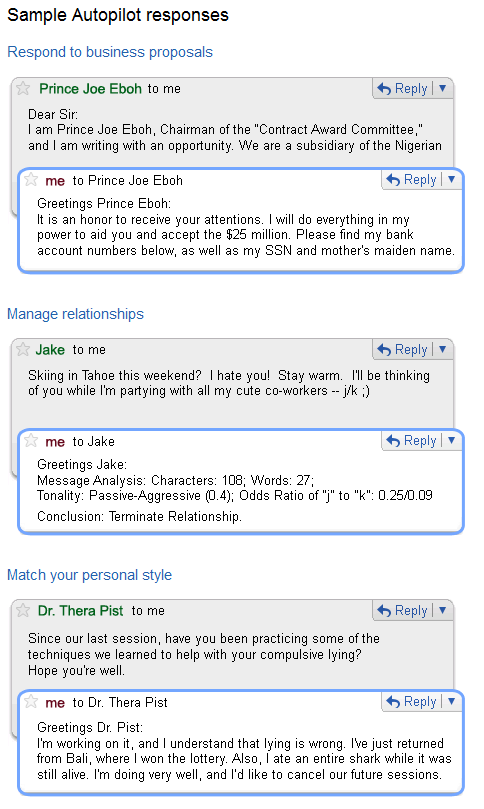
2010 –
See bottom of this postings for 2010 April Fool’s Jokes.
Google non-April Fool Jokes
Google has regularly pumped out numerous April fools jokes at once. Ironically due to their playful nature, many ACTUAL news was seen as a hoax when it was not as a form of viral marketing. The best one is below.
2004 – Launch of Gmail was announced. Many believed it to be a hoax. 1 Gig of free Web Storage was unheard of at the time. Other competitors such as Yahoo & Hotmail only provided anywhere from 2-4 megs.
Top April Fools Jokes By Magazines, Newspapers, and Books
- 168 Mile Fast Ball – George Plimpton wrote a 1985 article in Sports Illustrated about a New York Mets prospect named Sidd Finch, who could throw a 168 mph (270 km/h) fastball with pinpoint accuracy. This kid, known as “Barefoot” Sidd Finch, reportedly learned to pitch in a Buddhist monastery. The first letter of each word in the article subhead spelled out the fact of its being an April Fool joke.
- Lies to Get You Out of the House – In 1985, the L.A. Weekly printed an entire page of fake things to do on April Fools’ Day, by which hundreds of people were fooled.
- Comic strip switcheroo – Cartoonists of popularly syndicated comic strips draw each others’ strips. In some cases, the artist draws characters in the other strip’s milieu, while in others, the artist draws in characters from other visiting characters from his own. Cartoonists have done this sort of “switcheroo” for several years. The 1997 switch was particularly widespread.
- Coldplay to back the Tories – On April 1, 2006 the UK Guardian journalist “Olaf Priol” claimed that Chris Martin of rock band Coldplay had decided to publicly support the UK Conservative Party leader David Cameron due to his disillusionment with previous Labour Party prime minister Tony Blair, even going so far as to produce a fake song, “Talk to David”, that could be downloaded via the Guardian website. Despite being an obvious hoax, the Labour Party’s Media Monitoring Unit were concerned enough to circulate the story throughout “most of the government”.
- President Barack Obama pulls fundings for NASCAR – On April 1, 2009, on the heels of the auto industry bailout, Car and Driver claimed on their website that President Barack Obama had ordered Chevrolet and Dodge to pull NASCAR funding. The article was removed from the website and replaced with an apology to readers, after upset NASCAR fans protested on the Car and Driver website.
- The Guardian to publish to Twitter – On April 1, 2009 The Guardian announced that it would be the first newspaper to publish exclusively on Twitter.
April Fools Jokes, Products & Hoaxes in 2010 Online
- Google Changes their name to Topeka – In response to the mayor of Topeka changing their city name to Google, Google has decided to honor their gesture by changing their own company name to Topeka.
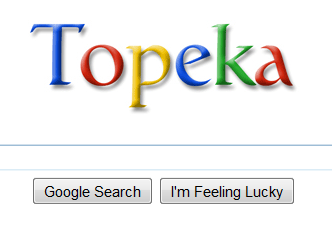

- iPhone to iPad Converter – Can’t afford iPad? Just get this iPad dock that will magnify your iphone so it’s just like an iPad! Ouch says Apple.
- Life size Picasa – Google offered an option which allows the user to print lifesize cardboard cutouts of all of their photos.
- Reddit Website – Everyone has been made an admin resulting in total chaos and fun. Move stuff around. Ban other users. I am sure they will reset this tomorrow… right?
- Google Translate for Animals – Bridging the gap between animals and humans check it out!
- Google Gmail Login Page missing all their vowels.
- ThinkGeek Announces the iCade – Pretty clever. Just look at the picture.

Share Your Favorite April’s Fools Day Joke or Hoax
- Which one was your favorite?
- Know of Any other Good Pranks not listed here?
- Share below!
Want to see More? Check out some of the Best April Fool Jokes Online in 2010. Props to Starbucks and Google: Best April Fool Jokes in 2010
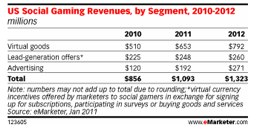
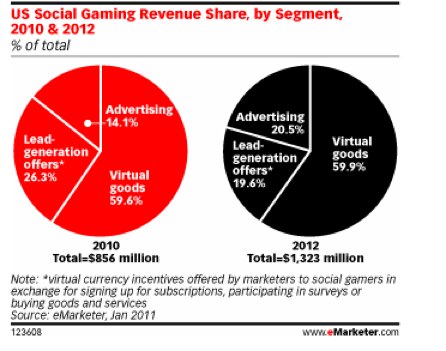
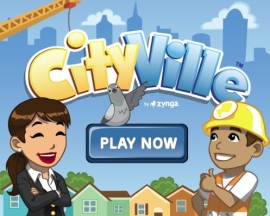 Think about this: Farmville’s all time high number of players if 80 million players. Cityville is recently reported reaching 100 million players. That is why I am announcing that I am currently working on games Metroville and Starville. I am going to be rich.
Think about this: Farmville’s all time high number of players if 80 million players. Cityville is recently reported reaching 100 million players. That is why I am announcing that I am currently working on games Metroville and Starville. I am going to be rich.
 How Can People Spend So Much!?
How Can People Spend So Much!?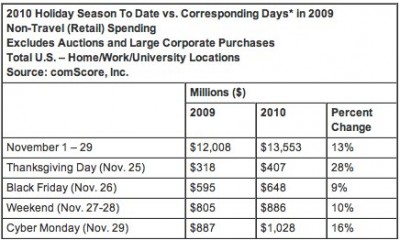
 92% of US Toddlers have Online Presence!
92% of US Toddlers have Online Presence!


 Top 10 General Security Tips for Facebook
Top 10 General Security Tips for Facebook
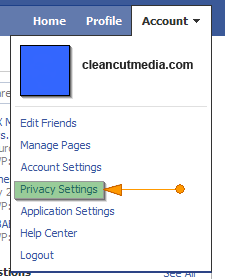 It boils down to two things:
It boils down to two things: 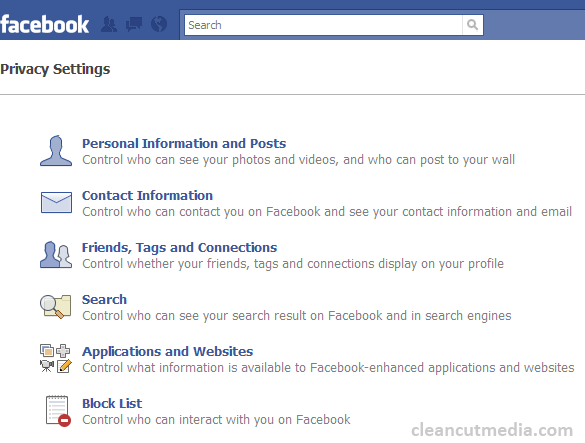 Personal Information and Posts:
Personal Information and Posts: